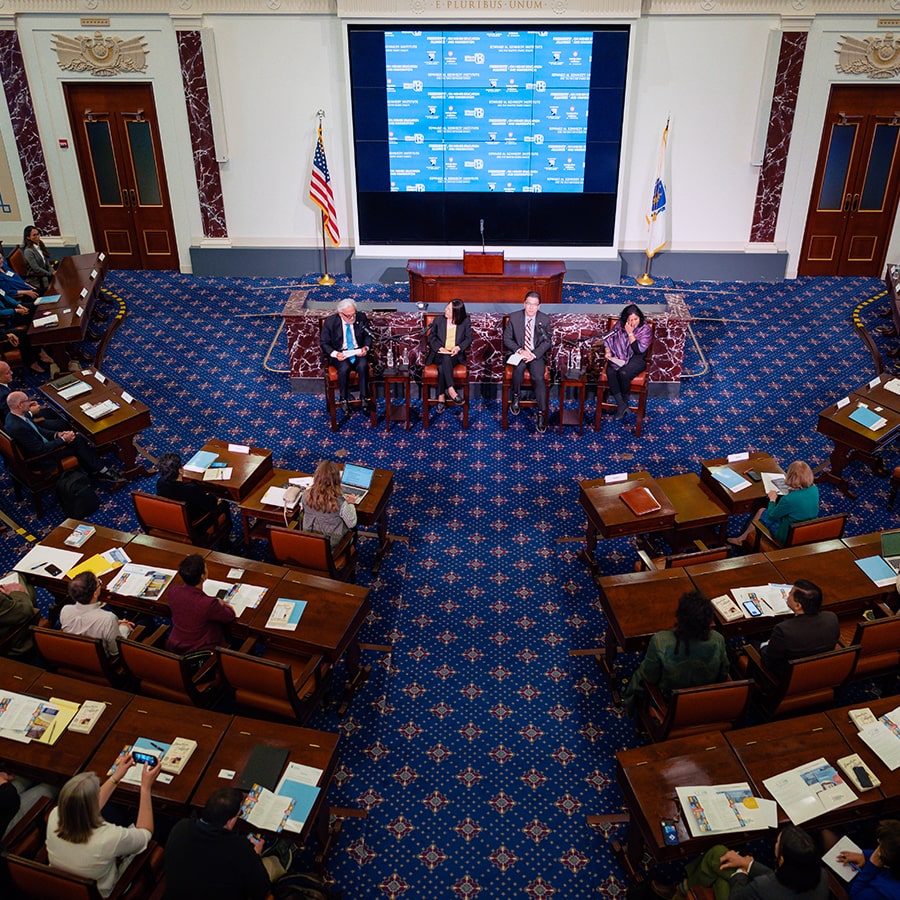Plan Your Education
How to Apply
Applicants must meet general graduate admission requirements in addition to the following program-specific requirements:
- Statement of Purpose: Submit a personal statement (1,500 words) highlighting your research, career interests and goals, and your motivation for pursuing a PhD in Public Policy. Please include answers to the following questions:
- What are your career objectives and how will a PhD in Public Policy advance those objectives?
- What professional, personal, and academic experiences have prepared you to pursue a PhD in Public Policy?
- What research and public policy issues are you interested in pursuing at UMass Boston?
- Official Transcripts: Include official transcripts of all prior academic work, including evidence of a bachelor's degree from an accredited institution.
- Letters of Recommendation: Solicit three letters of recommendation, at least two of which should come from individuals who can assess academic preparation for advanced graduate work.
- Writing Sample: Include a short (3-5 page) academic writing sample or professional policy brief.
- GRE Scores (Optional): Submit official GRE scores. Previous scores less than five years old will be accepted. Our institutional code is 3924 when you register for the exam.
- Résumé or CV: Attach a current résumé or CV listing your educational background on the top of page one with degree(s) earned, name(s) of school(s), major(s) and overall GPA(s)
- Application Fee: Don't forget the application fee of $75.
Deadlines & Cost
Deadlines: February 1 (priority) and April 1 (final) for fall
Application Fee: The nonrefundable application fee is $75. UMass Boston alumni and current students that plan to complete degree requirements prior to graduate enrollment can submit the application without paying the application fee.
Cost: For additional information regarding tuition and fees, please visit the Bursar’s Office or send an email to Bursar@umb.edu. Please refer to Graduate Student Financial Aid for more information on financial aid.
Curriculum
Core Interdisciplinary Courses (27 Credits)
- PPOL-G 602 - Political Economy of Class, Race and Gender 3 Credit(s)
- PPOL-G 609L - Qualitative Methods and Field Research 3 Credit(s)
- PPOL-G 611 - Public Policy Processes: Environments, Power and Outcomes 3 Credit(s)
- PPOL-G 612 - Approaches to Policy Analysis: Epistemology, Theory and Institutions 3 Credit(s)
- PPOL-G 621 - Microeconomics for Policy Analysis 3 Credit(s)
- PPOL-G 622 - Public Finance and Budgeting 3 Credit(s)
- PPOL-G 711 - Multi-Disciplinary Topics in Public Policy 3 Credit(s)
- PPOL-G 716 - Public Policy ProSeminar 1 Credit(s) - complete three credits
- PPOL-G 760 - Sociological Perspectives on Public Policy and Social Justice 3 Credit(s)
Core Research and Quantitative Methods Courses (12 Credits)
- PPOL-G 604L - Statistical Methods in the analysis of Social Problems I 3 Credit(s)
- PPOL-G 605L - Statistical Methods in the Analysis of Social Problems II 3 Credit(s)
- PPOL-G 630 - Research Methods I for Policy 3 Credit(s)
- PPOL-G 631 - Research Methods II for Policy 3 Credit(s)
- PPOL-G 891 - Dissertation Workshop for Public Policy 3 Credit(s)
Electives (18 Credits)
Complete six courses from below.
Students may also elect to complete an internship working on a policy project.
- PPOL-G 740 - Political Institutions 3 Credit(s)
- PPOL-G 749L - Scientific & Political Change 3 Credit(s)
- PPOL-G 753L - Epidemiological Thinking and Population Health 3 Credit(s)
- Dissertation (7 Credits)
Dissertation (7 Credits)
- PPOL-G 899 - Dissertation 1-12 Credit(s)
For more information on curriculum, including course descriptions and degree requirements, visit the Academic Catalog.
Learning Outcomes
Upon completion, students will:
- have attained scientific literacy in public policy theory and methods.
- demonstrate theoretical knowledge in the interdisciplinary field of public policy.
- be able to plan and execute a dissertation project advised by a faculty committee.
- have acquired professional skills to communicate research ideas and policy arguments.
- understand and practice scientific ethics and values.
Graduation Criteria
The PhD consists of 67 credits arranged over 14 required core classes including a 1-credit Pro-Seminar during the first three fall semesters, 6 elective courses, successful completion of a comprehensive exam, a dissertation proposal and a dissertation.
Candidacy: Passage of two competency exams given at the end of the first and second years.
Dissertation: Compose and defend a dissertation based on original empirical research.
En Route Master’s Degree: Students may, with the approval of the program director, apply to receive a Master’s in Public Policy (MPP) en route to the PhD. To qualify, students must complete all core courses and electives and pass both competency exams.
Statute of limitations: Eight years.
Contact
Program Director Heather MacIndoe
Graduate Program Administrator, Outreach and Recruitment Jack Li
Public.Policy@umb.edu
(617) 287-6905

Public Policy & Public Affairs
Learn more about UMass Boston's Public Policy & Public Affairs department, our research, and our faculty.
Explore Department of Public Policy & Public Affairs
The McCormack School
Learn more about the McCormack School, a nationally recognized leader in public service education dedicated to social justice and equity.
Explore the McCormack School